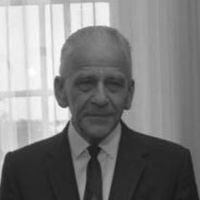This article needs additional citations for verification. (March 2009) |
The Lord Maybray-King | |
|---|---|
 King in 1966 | |
| Speaker of the House of Commons of the United Kingdom | |
| In office 26 October 1965 – 12 January 1971 | |
| Monarch | Elizabeth II |
| Prime Minister | Harold Wilson Edward Heath |
| Preceded by | Harry Hylton-Foster |
| Succeeded by | Selwyn Lloyd |
| Deputy Speaker of the House of Commons Chairman of Ways and Means | |
| In office 3 November 1964 – 26 October 1965 | |
| Speaker | Harry Hylton-Foster |
| Preceded by | William Anstruther-Gray |
| Succeeded by | Samuel Storey |
| Member of the House of Lords Lord Temporal | |
| In office 2 March 1971 – 3 September 1986 Life Peerage | |
| Member of Parliament for Southampton Itchen | |
| In office 26 May 1955 – 11 January 1971 | |
| Preceded by | Ralph Morley |
| Succeeded by | Bob Mitchell |
| Member of Parliament for Southampton Test | |
| In office 23 February 1950 – 6 May 1955 | |
| Preceded by | Constituency created |
| Succeeded by | John Howard |
| Personal details | |
| Born | Horace Maybray King 25 May 1901 Grangetown, England |
| Died | 3 September 1986 (aged 85) Southampton, England |
| Political party | Labour |
| Spouses |
|
| Children | 1 |
| Alma mater | King's College London |
| Profession | Teacher |
Horace Maybray Maybray-King, Baron Maybray-King, PC (né King; 25 May 1901 – 3 September 1986), was a British politician who served as a member of Parliament (MP) from 1950 until 1971 before becoming a life peer. For most of his time in Parliament, he sat as a Labour MP. Following the death of Harry Hylton-Foster in September 1965, King, who had served as deputy speaker for ten months, became the Speaker of the House of Commons. As was customary, he renounced his party allegiance upon taking up the post.[1] He was the first person from the Labour Party to hold the post.
- ^ "Office & Role of Speaker - UK Parliament". www.parliament.uk. Archived from the original on 21 May 2011.